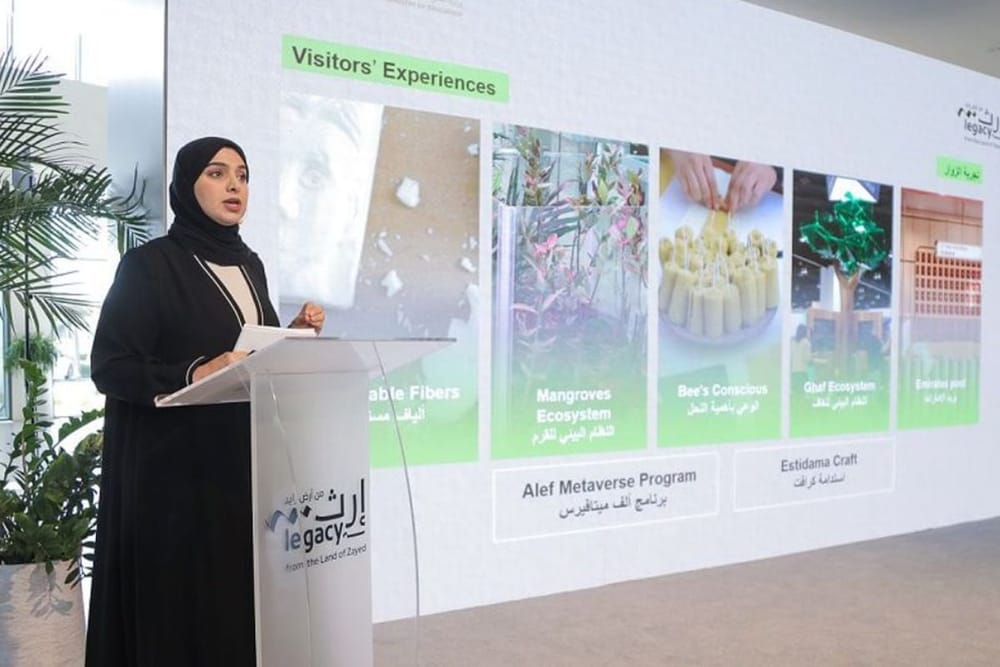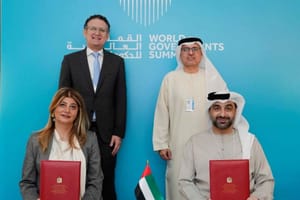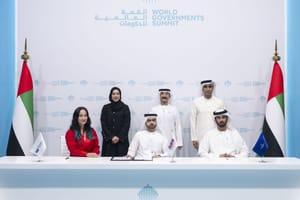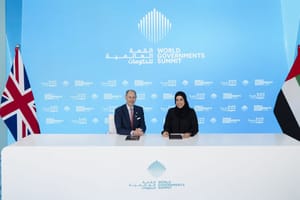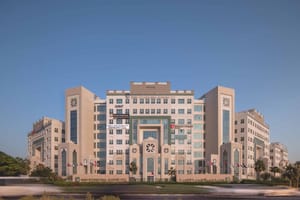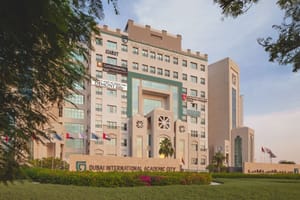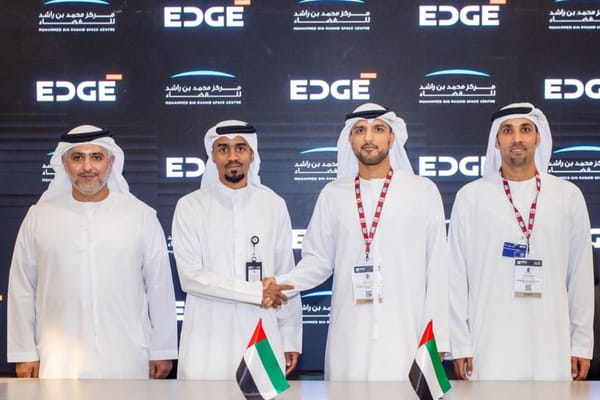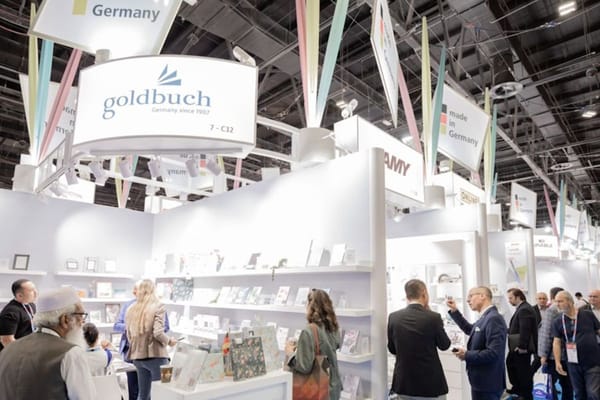As part of its efforts to achieve the goals of the UAE Green Education Partnership Roadmap in preparation for the UAE’s hosting of COP28, the Ministry of Education (MoE) today launched the Greening Education Hub under the theme “Legacy from the Land of Zayed”.
The Hub aims to highlight the importance of education in addressing climate issues and the need to include education in the official discussions during COP28, held at Expo City Dubai from 30th November to 12th December.
The launch of the Hub was made during a press conference held by the MoE at SEE Institute, Dubai Sustainable City, and in the presence of Dr. Ahmad Belhoul Al Falasi, Minister of Education; Dr. Amna Al Dahak Al Shamsi, Assistant Under-Secretary for the Care and Capacity Building Sector at the Ministry of Education; and representatives of COP28, leaders from various local and international bodies, along with an elite group of experts and specialists.
During his keynote speech, Dr. Ahmad Belhoul Al Falasi noted that the UAE is located in a desert climate, characterised by intense heat and arid conditions. In the face of these challenges, the country remains steadfast in its commitment to prioritising resource conservation through innovative solutions. He emphasised that sustainability is of strategic importance and reflects the UAE’s values of preserving the environment and social traditions. He said:
“Our ancestors lived in harmony with nature, taking only as much as they needed. Fast-forward to today and their age-old wisdom is still valid in our modern times. They recognised the vital importance of preserving precious natural resources for future generations.”
Dr. Ahmad Belhoul Al Falasi stated that the Greening Education Hub themed ‘Legacy from the Land of Zayed, was born out of months of collaboration with the United Nations Educational, Scientific and Cultural Organisation (UNESCO), and is a leap forward in placing education at the centre of climate action. He said,
“The UAE follows the footsteps of the Founding Father, the late Sheikh Zayed bin Sultan Al Nahyan, and continues to mark significant achievements in environmental protection and sustainable development. Hosting COP28 is just another testament to the country’s leadership position in these vital fields. Today, we are honoured to carry on Sheikh Zayed’s legacy aimed at contributing to global sustainability efforts.”
He added,
“We are on a mission to leave a legacy and ensure that the upcoming COP events continue to ignite the passion for effective climate-related education. This way, we can create a lasting positive impact on the future of our planet. By unlocking the full potential of education to address climate change, we empower our youth to lead the change, paving the way towards a more sustainable tomorrow for all.”
For her part, Dr. Amna Al Dahak Al Shamsi said,
“Earlier this year, we launched the UAE's Green Education Partnership Roadmap in preparation for COP28 in cooperation with UNESCO and UNICEF. In line with our commitment to achieving the goals of the partnership, we are working across four pillars: Greening Schools, Greening Curriculum, Greening Capacities, and Greening Communities. Four zones of the Greening Education Hub are themed around these pillars, with the fifth dedicated to the overall Greening Education Partnership and the sixth including the main stage (Erth Zayed).”
Dr. Al Shamsi added,
“At the UAE Ministry of Education, climate education is one of our top priorities. We have already started implementing several initiatives, like the Educators’ Voice and Net Zero Heros. We are confident the ‘Greening Education Hub – Legacy from the Land of Zayed’ will leave a legacy that other nations will benefit from in upcoming COPs. We want visitors to acquire the knowledge and skills they need to actively implement sustainability practices, extending their impact beyond COP28 and contributing to a lasting commitment to environmental stewardship.”
The ‘Greening Education Hub – Legacy from the Land of Zayed’ hosted by the MoE during COP28 over the course of 13 days will include more than 250 sessions and workshops, comprising 127 international sessions and 151 national sessions. The Hub has attracted participants from 38 countries, representing a truly global platform for leaders, experts and specialists. It also has the support and involvement of 99 NGOs and 36 national entities.
To enrich the discussions, 70 esteemed speakers will participate in the Hub’s activities to share their expertise and inspire attendees with their insights. The MoE will also organise 46 sessions. Moreover, the MoE has fostered partnerships with over 40 international partners, resulting in the development of more than 30 projects and activations around climate education. These collaborations will undoubtedly contribute to the success and impact of the Hub, and these numbers reflect the importance of coordinating efforts to enhance the role of education and its contribution to climate change.
In the Greening Education Partnership zone, visitors will be able to join sessions aimed at highlighting the central role of education in tackling the climate crisis. Other sessions will focus on mobilising political commitment for coordinated, synergetic, and comprehensive action through the Greening Education Partnership. The Greening Schools zone will showcase sustainable infrastructure programmes, models, and designs for eco-friendly schools, as well as successful case studies of schools and universities implementing environmental programmes, renewable energy solutions, and sustainable initiatives. Additionally, the zone will present interactive displays and virtual simulations demonstrating the integration of sustainable practices in school and university facilities and daily operations.
The Greening Capacities zone will outline ways for the education system to achieve a systemic and comprehensive impact on climate change adaptation. It will also highlight the role of educators as change agents in mitigating the repercussions of climate change. The Greening Curriculum zone will focus on integrating climate change, environmental awareness, and sustainable development into the curricula. The sessions in this zone will also feature innovative teaching methodologies, educational resources, and technology-based tools that engage students in experiential learning about sustainability.
The Greening Communities zone will introduce community-led initiatives that promote sustainable practices in education, and engage local stakeholders, including parents, NGOs, and businesses. It will also present successful partnerships between schools and communities, and provide networking spaces for stakeholders to connect, share experiences, and foster collaborations to address common sustainability challenges at the community level.
Anticipating a significant turnout, the Hub is expected to welcome more than 1,000 visitors and 500 students on a daily basis, with a total attendance projected to exceed 18,000 over the course of 13 days. This demonstrates the high level of global interest in the role of education in sustainability.
News Source: Emirates News Agency
